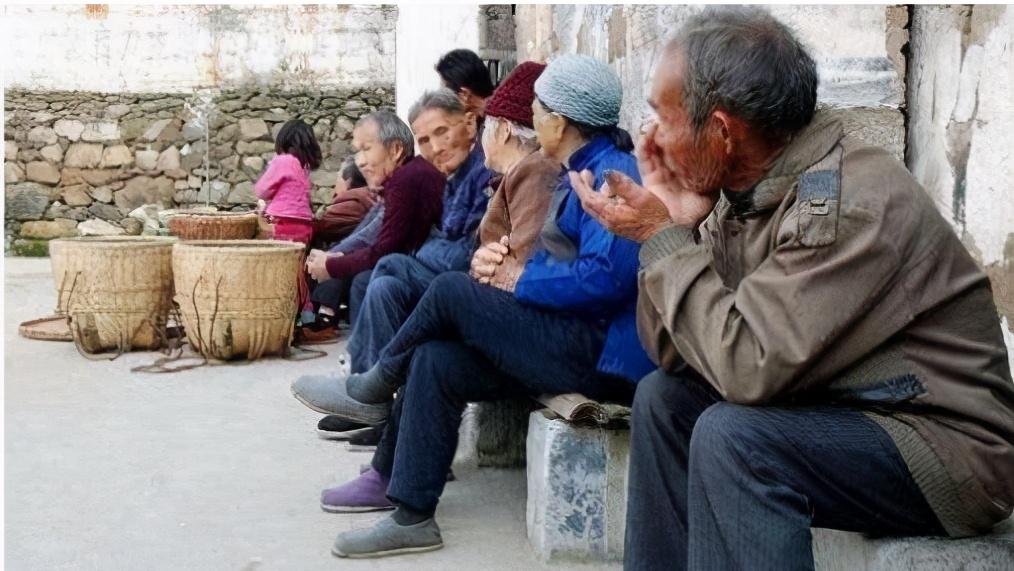In the countryside, there are many catchy sayings, which are the experiences and lessons summed up by the older generation of people in their lives and labor. The coverage of colloquialisms is very wide, and many of them are closely related to our lives, such as the saying "four major sorrows, four big bends, four big colds, and four big slows" that we are going to talk about today, so what do we mean?

First, four major worries
The four major worries refer to the lack of children, the anger of the wife, the lack of a house and the lack of renminbi
No children: In the past, most people felt that children had the meaning of inheritance, which also led to many couples who were very much in love and had to part ways because they did not have children. The reason why there is such an ending is because people feel that if there is no child, the incense of this family cannot be passed on, but the inability to have children is not a one-sided problem, and it should be viewed rationally.
Angered by the wife: Whether in the past or in the present, there are "strict wives" who are afraid of their wives, and men feel that it is very faceless to be called by their daughters-in-law all day, but there is no way to change the status quo, so they are very worried.
Can't get a house: In the past, men would separate from their parents after marriage, but some families had bad economic conditions, and the family lived in a house, so even if the man was married, he couldn't get a house, and the husband and wife were very worried.
Lack of RMB: This point need not be said more, whether in the past or in the present, without RMB everyone is worried.
Two or four big bends
The four bends refer to rolled wool, alfalfa, reel handles and hookahs
Rolled wool: Rolled wool refers to the hair on the sheep, and anyone who has seen the sheep knows that the sheep's hair is curved inward and looks very rolled.
Alfalfa: Alfalfa refers to the young stems and leaves of alfalfa that roll up after cooking heat.
In the past, when there were wells in the countryside, the reel handle was used, and in order to lift the water in the well more quickly, the reel would bend it into a certain angle when designed, so no matter when it was seen, it was rolled.
Hookah bag: In the past, the rural elderly liked to smoke hookahs, and friends who have seen hookahs know that hookahs have a certain curvature.
Three or four big cold
The four colds refer to the three or nine winters, the northwest wind, the foot on the ground and the ice in the hand
39 Winter: "Cold in 39, hot in 3 volts", 39 refers to the 3rd nine days after the winter solstice, which is the coldest day of the year.
Northwest wind: Northwest wind refers to the cold air flow from Siberian region, every winter most of China will blow northwest wind, "cold wind bone" is used to describe the northwest wind.
Foot-stepping di Ding: Di Ding, also known as rabbit ear grass, is a perennial herb, very common in rural areas, or a Chinese herbal medicine that is clear of heat and dampness, detoxification and swelling, because it is cool in itself, so after mashing its leaves and applying it to the hand, it will feel cold and bone-chilling.
Holding ice in your hands: Holding an ice cube in both hands, you don't need to describe it to know it's cold.
Four, four slow
The four slows refer to the arrival of cars at stations, the docking of boats, the climbing of turtles and the begging of people.
Train entry: Friends who have taken the train know that when the train is about to enter the station, the train will stop power and move forward by inertia, so it will be very slow.
Boat docking: In areas with abundant waters in the south of China, boats used to be one of the main tools for people to travel. When the boat is about to reach shore, the rower will continue to stop rowing, so that the speed of the boat is reduced, so that it can be better parked at the dock.
Turtle climbing: We often use turtles to describe slow, and the saying that turtles crawl on flat ground is already very slow, not to mention letting turtles climb mountains.
Asking people to do: asking people to do things refers to asking people to do things, everyone will always encounter several times in their lives to ask people to do things, friends who have the experience of asking people to do things should understand why he is very slow.
The above is the rural proverb "four great sorrows, four big bends, four big cold and four big slow" refers to things, how do you understand this saying? Welcome to the discussion.